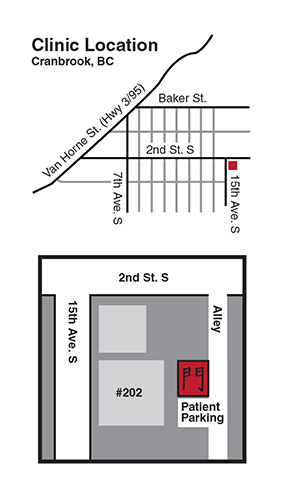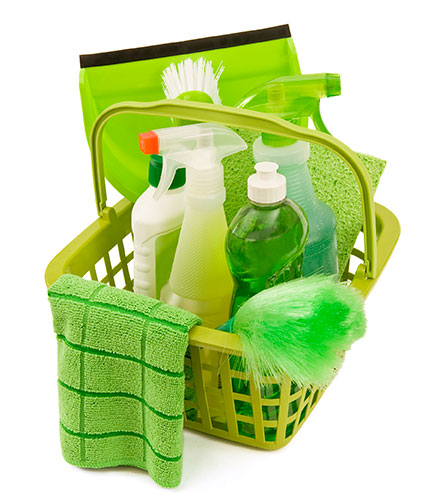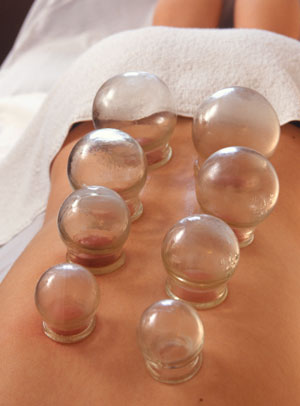Follow Us!
- Open Gate Acupuncture & Herbal ClinicDr. Danielle McFadzen
202 15th Ave South
Cranbrook, BC V1C 2Y6
Canada1-250-417-1771 Clinic Hours
MonclosedTue9am-6pmWed9am-6pmThu9am-5pmFri9am-1pm
-

-
Latest Articles:
- • Strategies to Stay Calm and Joyful During the Season •
- • How to Stay Mentally Resilient in the Colder Months •
- • Three Delicious and Healthy Soup Recipes to Keep Warm This Winter •
Wellness
9 Ways to Rid Your Home of Endocrine Disruptors
 Can a shower curtain be bad for your health?
Can a shower curtain be bad for your health?
It can if it contains phthalates.
Phthalates are just some of over 800 chemicals that are labeled as endocrine disruptors. These chemicals are toxic for a number of reasons. They may mimic estrogen, androgen or thyroid hormones and cause your body to respond to them inappropriately. Or they may block, stimulate or inhibit these hormones. By interfering in your hormone system, there is growing evidence that these chemicals are responsible for a wide range of health problems.
Endocrine disruptors are found in many products. Sandwich bags, air fresheners, dryer sheets, perfumes, sunscreens, cleaning products, laundry detergents, flame retardants, pesticides, cosmetics, shampoo, conditioners and vinyl shower curtains can all be suspect.
One widely known endocrine disruptor is bisphenol-A or BPA. This chemical is found in plastics and is the reason many people choose glass water bottles over plastic.
In February 2013, the United Nations Environmental Program (UNEP) and the World Health Organization (WHO) released a new report: State of the Science of Endocrine Disrupting Chemicals 2012. According to this study, endocrine disruptors are linked to high rates of endocrine-related cancers, such as breast, ovarian, prostate, testicular and thyroid cancers; low semen quality; genital malfunctions such as non-descended testes; adverse pregnancy outcomes; obesity; and Type 2 diabetes.
But the effects don’t stop with humans. The report also finds reproductive defects, infertility and antler malformations in some Alaskan deer populations and population decline in some species of otters and sea lions.
Clearly, it’s a good idea to minimize your exposure to these chemicals.
More than Needles: 6 TCM Therapies You May Never Have Heard of
 Most people know that one way to feel better is with acupuncture needles. You go to your acupuncturist feeling bad. I put in a few needles. You leave feeling lighter, energized, more pain-free.
Most people know that one way to feel better is with acupuncture needles. You go to your acupuncturist feeling bad. I put in a few needles. You leave feeling lighter, energized, more pain-free.
Using acupuncture needles to heal is part of a broader medical system called Traditional Chinese Medicine (TCM). By observing body systems and the links between symptoms, TCM developed a medical philosophy about the flow of Qi, or life force. When Qi is balanced, you feel healthy. When it is disrupted, blocked or unbalanced, poor health is the result.
In acupuncture, needles are placed at specific points along the meridians to balance the Qi.
But did you know that needles are just one way to balance Qi?
TCM is a flexible system. The principles can be applied in many ways and to many different therapies to achieve the same results.
In the following 2 part series, we will look at the many ways you can balance Qi. This first part of the series describes the TCM therapies that require the help of a practitioner.
6 Ways to Relieve Allergies Without Drugs, Shots or Needles
 Summer finally arrives.
Summer finally arrives.
The sun comes out. The flowers bloom.
Most people grab their sunscreen and head outside. But what do you do?
You close the windows, grab your antihistamines and hide in the house.
Wouldn’t it be great if you could enjoy being outdoors?
Allergies are widespread. According to WebMD, 20% of the population suffers from allergies or asthma, and 55% of the population tests positive for one or more allergens. Allergies are the 5th leading chronic disease in the US and cost the US health care system $7.9 billion annually.
If you can’t live with your runny nose, congestion or watery eyes, but you don’t want to take antihistamines or get allergy shots, what can you do to relieve your symptoms?
7 Healthy Tips for Coping with Financial Stress
 If you feel stressed just living your life, you’re not alone.
If you feel stressed just living your life, you’re not alone.
Americans lead stressful lives. Jobs, relationships, health, family obligations, community responsibilities—they all take their toll.
In “Stress in America 2012,” an annual survey by the American Psychology Association, 1 in 5 respondents reported an extreme stress level of 8, 9 or 10 on a 10-point scale. In that same group 69% of respondents reported physical or non-physical symptoms of stress, including irritability or anger, fatigue, feeling overwhelmed or changes in their sleep.
The top source of stress according to 69% of the respondents is–money. continue reading
How Traditional Chinese Diabetic Treatments Bring New Hope for an Old Disease
Diabetes is a worldwide concern. Millions of people suffer or die from it and its complications. The rate at which it is increasing in the population is staggering.
According to the World Health Organization about 347 million people worldwide have diabetes. Deaths from diabetes will rise 50% in the next 10 years and by 2030 diabetes is expected to be the seventh leading cause of death worldwide. continue reading

